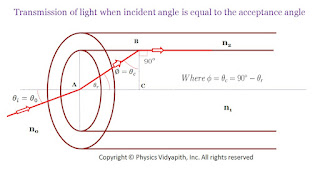Comparison of Isothermal and Adiabatic Processes for an Ideal Gas
Isothermal Process:
1.) In this process temperature remains constant i.e.$(\Delta T= 0)$.
2.) In this process internal energy remains constant i.e. $(\Delta U= 0)$.
3.) This process takes place very slowly.
4.) In this process the system is surrounded by a perfectly conducting material, whose conductivity is infinite.
5.) This process obeys Boyle's law i.e. $(PV= constant)$.
6.) In this process the slope of isothermal curve $=-\frac{P}{V}$
7.) In this process specific heat of gas should be infinite.
Adiabatic Process:
1.) In this process exchange of heat does not take place i.e. $(\Delta Q= 0)$ but temperature changes.
2.) In this process internal energy changes.
3.) This process takes place very rapidly.
4.) In this process the system is surrounded by a perfectly insulating material, whose conductivity is zero.
5.) This process obeys Poisson's law i.e. $(PV^{\gamma} = constant)$.
6.) In this process the slope of adiabatic curve $=- \gamma \frac{P}{V}$
7.) In this process specific heat of gas should be zero.

